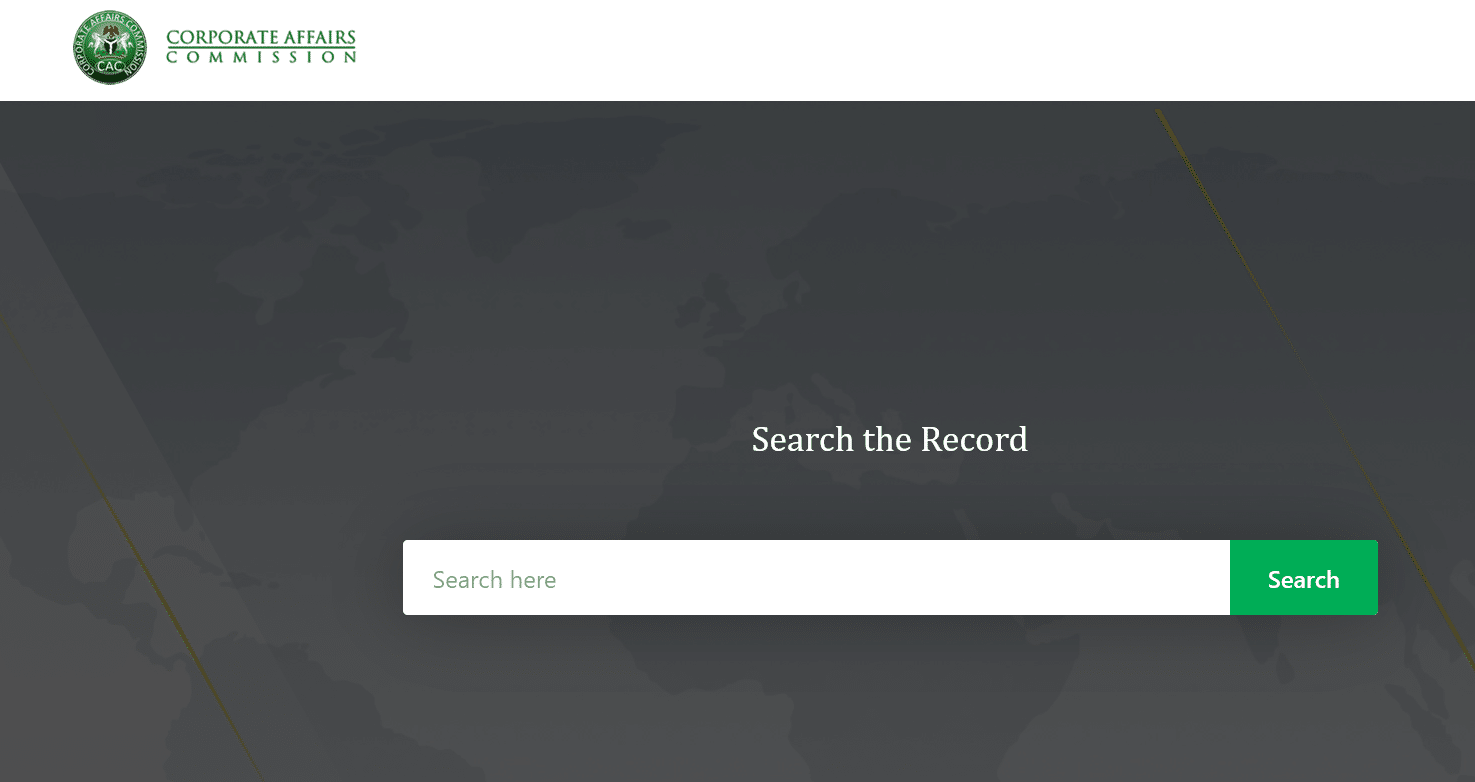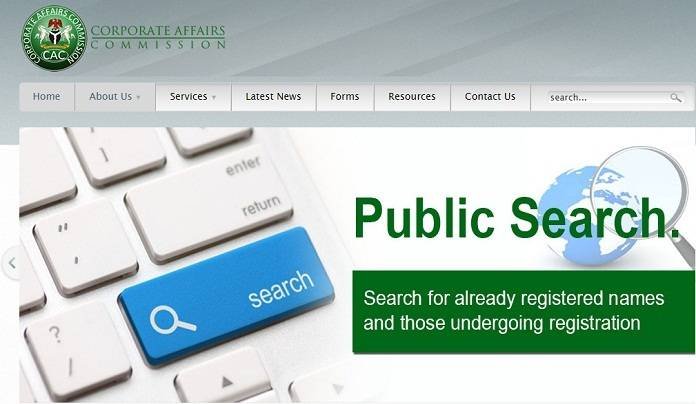In a business environment where credibility is everything, being able to confirm a company’s legal status is essential.
If you’ve ever searched for a list of registered companies in Nigeria with CAC, you’re not alone. I can boldly say more people have made this search than you can even imagine and it’s the same reason you landed on this page.
Many individuals, investors, and business partners want to verify whether a company is properly registered by the Corporate Affairs Commission (CAC), which is the official body responsible for business registration in Nigeria.
This article covers everything you need to know about CAC registered companies, why official registration is very important, and where to find reliable lists of companies currently recognized by the commission.
Having access to a verified list of CAC registered companies is important because it helps you avoid fraudulent businesses, ensures transparency in transactions, and gives you confidence when entering into contracts, partnerships, or investments with any firm or individuals.
What is CAC
The Corporate Affairs Commission (CAC) is the government office in charge of registering and keeping records of businesses in Nigeria. If you want to start a company, open a business name, or set up an organization, the CAC is where you go to make it official.
The CAC was created in 1990 under a law called the Companies and Allied Matters Act (CAMA).
This law explains how businesses in Nigeria should be registered, managed, and regulated.
In 2020, the law was updated to make the whole process faster and easier, especially with the introduction of online registration.
Here’s what the CAC does:
- Registers new companies and business names.
- Keeps an official list of all registered businesses in Nigeria.
- Makes sure companies follow the rules, like filing their yearly returns.
- Helps protect the public by making it easy to confirm if a company is genuine.
In simple terms, the CAC is what gives your business “legal recognition.” Once your business is registered, people can trust that it is real, credible, and accountable.
Why Register a Company with CAC
If you’re running a business in Nigeria, registering it with the Corporate Affairs Commission (CAC) is one of the smartest steps you can take. It doesn’t just make your business “official” it also comes with real benefits.
Your business name is protected
Once your company is registered, no one else can legally use that same name. This means your brand is safe, and you don’t have to worry about another business taking credit for your hard work.
It builds trust and opens doors
People are more likely to trust and do business with a company that’s registered. Banks, government agencies, and even big companies usually won’t work with an unregistered business.
With CAC registration, you can apply for loans, sign contracts, and attract bigger opportunities.
Avoids future problems
If your business isn’t registered, someone else could register the same name and take it away from you. You might also miss out on funding, be unable to open a corporate bank account, or face legal issues.
In some cases, you could even be fined for operating without registration.
Types of Companies Recognised by CAC
The Corporate Affairs Commission (CAC) registers different types of businesses and organizations in Nigeria. Each type serves a different purpose depending on what you want to do. Here’s a quick guide:
Private Company (Limited by Shares)
This is the most common type of company. It’s usually owned by a small group of people, like friends, family, or business partners. If the company runs into trouble, the owners only risk the money they invested, not their personal belongings.
Public Company
A public company can sell shares to the general public and usually raises money from many investors.
These companies are bigger and must follow stricter rules, but they can grow much faster than a private company.
Company Limited by Guarantee
This type is mostly for non-profit purposes, like charities, clubs, or associations.
Instead of shareholders, it has members who promise to contribute a small amount if the company is ever closed down.
Incorporated Trustees / Non-profits
This is for organizations like churches, mosques, NGOs, and community groups. It allows these groups to operate legally, own property, open bank accounts, and be recognized officially.
How to Search for Companies Registered with CAC

Before you do business with any company in Nigeria, it’s smart to confirm that it’s officially registered with the Corporate Affairs Commission (CAC). Thankfully, the process is easy and can be done online.
Use the CAC Public Search Tool
The CAC has a free search tool on its website. Here’s how to use it:
- Go to the official CAC website and Click on “Public Search”.
- Type in the company’s name or its RC number (that’s the company’s registration number).+
- Click search, and the results will appear.
The search results usually give you: The company’s name (as it was registered), The RC number, The date it was registered, The status of the company (active, inactive, or removed), The type of company (private, public, incorporated trustees, etc.)
How to Make Sure It’s Authentic
Just seeing the name isn’t enough as you should also double check:
That the RC number matches what the company gave you. That the company’s status says “Active”. That all the details (like name and date) match the information you were told.
If something doesn’t look right, or if you need more details, you can request official documents from the CAC to confirm everything.
list of registered companies in nigeria with cac
There are millions of businesses registered with the Corporate Affairs Commission (CAC) across the country. From small shops to big corporations, every properly registered company has its details stored in the CAC database.
Of course, the full list is too large to publish here, but you can always check the CAC website if you want to look up a specific company.
To give you a feel for what a registered company looks like, here’s a quick sample list of some well known names:
Company name | RC Number |
|---|---|
| Dangote Cement Plc | 208767 4 |
| Guaranty Trust Bank Plc | 152321 |
| MTN Nigeria Communications Plc | 395010 4 |
| Innoson Vehicle Manufacturing Co. Ltd | 499682 |
The CAC database can also be explored in different ways:
- By State: For example, Lagos, Abuja, and Rivers State have the highest number of registered companies because they are major business hubs.
- By Year: Each year, tens of thousands of new businesses are added. Recent years show a sharp rise in tech startups and SMEs.
- By Sector: Popular sectors include banking, oil & gas, agriculture, manufacturing, telecommunications, and fintech.
For those who need more than just examples, the CAC provides a search tool where you can look up any registered company by name or RC number. You can also request certified company records if you need official proof for legal or business purposes.
How To Register a Company with CAC (Step-by-Step Guide)
Registering your business with the Corporate Affairs Commission (CAC) is now much easier than it used to be, thanks to the online registration system. Here’s a breakdown of the process:
Name Reservation
The first step is to choose a unique name for your company.
Go to the CAC portal and carry out a name search to check if your preferred name is available. If it’s free, you can reserve the name for 60 days while you complete the rest of the registration process.
Prepare Your Pre-Registration Documents
Next, you’ll need to get your documents ready. Depending on the type of company, the required documents may include:
- A completed CAC registration form (online).
- Identification of the directors and shareholders (e.g., National ID, Passport, or Driver’s License).
- Passport photographs.
- Memorandum and Articles of Association (for limited liability companies).
Pay the Fees and File Online
Once your documents are ready, you’ll pay the required registration fees directly on the CAC portal. After payment, you’ll upload all the necessary documents and submit your application for review.
Receive Your Certificate of Incorporation
If everything checks out, the CAC will approve your application and issue a Certificate of Incorporation. This is your company’s legal birth certificate proof that your business is officially registered in Nigeria.
You’ll also get other documents like your Status Report and Memorandum & Articles of Association (if applicable).
Post-Registration Obligations
After registration, your work doesn’t stop there. To keep your company in good standing, you need to:
File annual returns every year with the CAC.
Maintain proper corporate governance (e.g., holding meetings, keeping financial records).
Stay compliant with tax obligations and other regulatory requirements.
Frequency asked questions & answers
What Information Can I Find in a CAC Public Search?
When you search for a company on the CAC website, you’ll see the most important details about that business. The first thing that shows up is the official name, exactly how it was registered.
You’ll also get the company’s unique registration number this is like its fingerprint and no two businesses share the same one.
Another useful detail is the date the company was registered. This gives you an idea of how long it has been around and operating legally.
Just as important is the company’s status, which will appear as either Active or Inactive. If it’s active, it means the business is still in good standing with the CAC. If it’s inactive, that usually means it hasn’t filed its annual returns and is not fully compliant.
Sometimes, the search results also tell you what type of business it is whether it’s a limited liability company, a public company, a business name, or a non-profit organization.
All of this information helps you quickly figure out if a business is real, how old it is, and whether it’s keeping up with the rules.
Why is My Company Listed but Showing INACTIVE?
If your company shows up in a CAC search but the status says Inactive, don’t panic it usually means the business hasn’t filed its annual returns. Every registered company in Nigeria is expected to submit these returns once a year to stay in good standing.
When the returns are not filed, the CAC marks the company as inactive. The good news is that this can be fixed. All you need to do is settle the outstanding annual returns and update your records.
Most times, business owners use an accredited CAC agent or lawyer to help process the payment and get the company back to Active status.
In short, “inactive” doesn’t mean your company is gone it just needs a little compliance update to get back on track.
A Company is Showing “Under Registration.” What Does It Mean?
If you search the CAC portal and see that a company is marked as “Under Registration,” it simply means the business is still in the process of being registered. The application has been submitted, but it hasn’t been fully approved yet.
At this stage, the CAC is reviewing the documents and details provided. If everything checks out and there are no errors or missing information, the registration will be approved and the company will soon receive its Certificate of Incorporation.
So, “under registration” is just a temporary status it’s like saying the business is almost official but not quite there yet.
Is There a Full CAC List of Registered Companies I Can Download?
Many people wonder if there’s a single file they can download that contains the full list of all companies registered with the CAC. Unfortunately, that doesn’t exist. The database is massive, with millions of businesses across Nigeria, so the CAC doesn’t provide it as a downloadable document either in PDF, Doc, Word as some folks may claim online.
What you can do instead is use the CAC public search portal, where you can look up any company by name or registration number. This way, you can confirm if a business is truly registered and also see its current status.
So while you can’t download the full list, the search tool gives you quick access to the information you need, anytime you need it.

What i know is what i teach, and what I teach have many ways to benefit you if only you follow instructions carefully.





